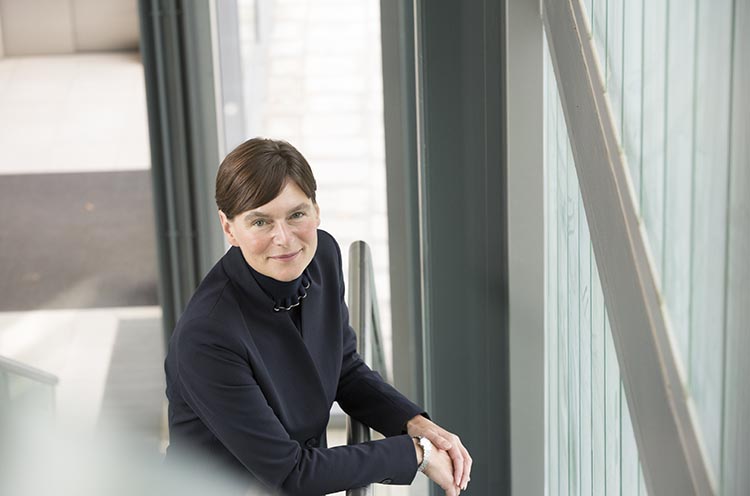Welcome back from the Christmas and New Year break. I hope everyone had a happy and peaceful time and I wish you all a Happy New Year.
As we all know, 2019 will see an increasingly turbulent external environment which will affect the University, our staff and our students in a range of ways, much of which is as yet unknown. Brexit, and what will or will not happen, at the end of March and the outcome of the review of post-18 education and funding, are just two big issues on the horizon.
On Brexit, it would be foolish of me to try and predict what is likely to happen. But the University continues to do what we can to prepare for various contingencies. Professor Jeremy Carrette is chairing a small working group to ensure we are joined up and pulling together our planning internally as well as aligning with plans from Kent County Council. We are already providing HR information to staff, which is being updated on a rolling basis, and will ensure we provide further guidance to students and staff across a range of issues as the situation develops.
We are still expecting the outcome of review of post-18 education and funding to be published in the early part of this year although the date has yet to be announced. While it is probably impossible to call with any degree of accuracy what the outputs will be, or indeed if there will be any government time given to respond to them, we do know that the Office for National Statistics has ruled that there should be a change in how student loans are recorded in the public finances with the amount expected not to be repaid reclassified as public spending which is likely to influence the review recommendations. Colleagues will have noted debates relating to introducing ways of ‘capping’ student numbers again, as well as the overall level of the regulated fee itself. One thing we are sure of is that the amount of funding available overall is not going to increase.
We also have our own internal challenges. I have noted previously that our recruitment for 2018/19 did not match our overall student number targets and this has had a knock-on effect on University finances. We have less money coming in than we anticipated and our finances are now very squeezed. In addition, our current applications are down on last year and we will again therefore have fewer students to offer to and to convert to coming to Kent next year. I know colleagues are working hard to ensure that as many of these applications are now converted into our student numbers for 2019 as well as starting the recruitment cycle for 2020 entry. We are reviewing our courses, marketing and advertising, applicant interactions and conversion activity at all levels. This focus will need to continue. We need new programmes and new modes of delivery, and I know these are being developed but, as well as growing current activity and developing new programmes, we will need to make savings as our income is no longer matching our expenditure. As part of this, as you know, we are looking at how we are organised and how we do things right across the University.
At the same time as the relentless focus on student recruitment, we have been turning our attention to REF preparations. Just over £300k has recently been allocated to support the development of our impact case studies and we have just released another £300k to support work to raise the quality of our outputs. We need to continue to invest in this area of our work and ensure we are able to submit the best return possible to ensure it reflects the quality and impact of the work we do here at Kent and secures us the best possible outcome. We know this affects our profile and reputation as well as income and the result will be with us for a number of years post the REF itself.
I am delighted though that we have had a number of recent successes in terms of our grant capture which were announced very close to the Christmas break. Congratulations go to Dr Matthew Skinner (School of Anthropology and Conservation) and to Professor Ayse K Uskul (School of Psychology). Both secured funds from the European Research Council of almost €2m each.
We are also now in the process of identifying our first tranche of signature research areas. Please do get involved.
Finally, this is a challenging time for us all but I am convinced that by working together, committing to doing things differently, we will continue to build a great University which is able to thrive whatever the shape of the external environment.

